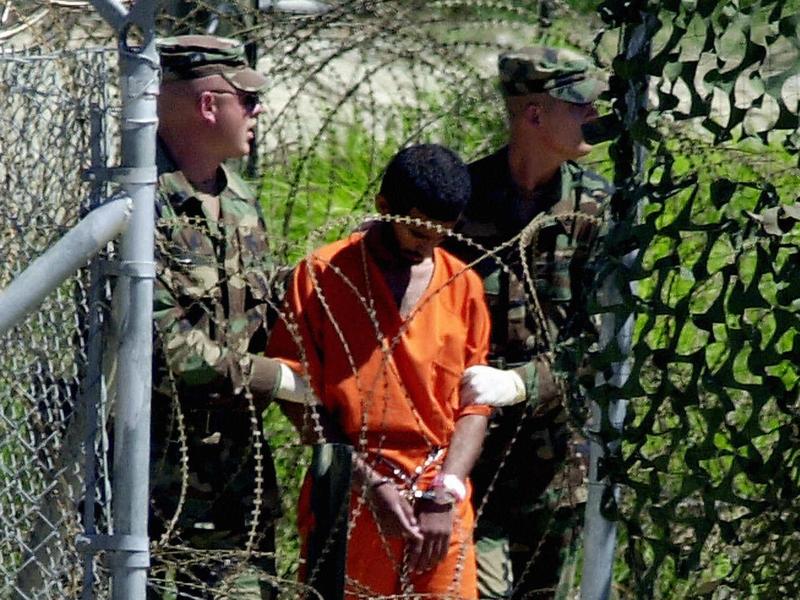Senate 'Torture Report' Findings Expected This Year

An executive summary of the Senate Intelligence Committee's two-year-old "torture report" will be made public before Democrats relinquish control of the Senate to Republicans in January — but don't look for its release until sometime after Thanksgiving. That's according to Dianne Feinstein, the California Democrat who is chairwoman of the intelligence panel.
"We are down to essentially one item in the redaction," Feinstein tells NPR, speaking of her months-long struggle with the CIA over parts of the 490-page executive summary that the agency has maintained should be blacked out. "It happens to be a very sensitive and important item."
Feinstein says she's spoken this week about that one last item with President Obama and with White House Chief of Staff Denis McDonough, who's been lead negotiator in the haggling over CIA redactions. (McDonough has close ties with CIA Director John Brennan, having served as his deputy national security adviser during Obama's first term.)
The Intelligence Committee chairwoman is hoping to hear back soon about that last sticking point in the executive summary. "As soon as we hear, we can begin to put the final touches on it and hopefully get it out," she adds, "when we come back from Thanksgiving break."
Other Senate Democrats on the intelligence panel are growing increasingly impatient over the executive summary's delayed release, although they're still backing Feinstein's efforts. "It should have come out yesterday," says Oregon's Ron Wyden. "Some of the demands that have been made by the CIA with respect to redactions have been ludicrous."
According to Wyden, the fight over redactions has centered on the CIA's wish to black out all the pseudonyms the Senate report uses when discussing CIA officials — a practice meant to shield the true identities of those officials to protect them, according to committee members, from possible reprisals.
But they say the CIA has insisted that making public even the pseudonyms could endanger lives. "In instances all the way going back to the [14 volumes in 1975-76 of the] Church Committee, there has never been a report that blacked out all of the pseudonyms," says Wyden. "The agency's requests in recent days are unprecedented."
A CIA spokesman tells NPR the committee's report names senior CIA officials without any redaction. But there are others, he adds, whose identities are not revealed — including some who still work for the CIA. "Making public pseudonyms associated with such individual officers, as well as dates, locations and other identifying information related to those officers," the spokesman says, "dramatically increases the likelihood that they will be exposed and potentially subject to threats or violence."
Democrats have a compelling reason to get the executive summary out soon. Only one Republican on the Intelligence Committee voted to approve the full report in Dec. 2012. Richard Burr, the North Carolina Republican expected to be the panel's new chairman in January, has long opposed that report for being based solely on CIA documents. His willingness to make parts of it — or all of it — public remains an open question.
But Feinstein insists speculation about what Republicans might do with the torture report is beside the point. "It is going to get done," she says, "so don't worry about that."
9(MDEwODYxNTQyMDEzNjAxODk2Nzc2NzNmYQ001))